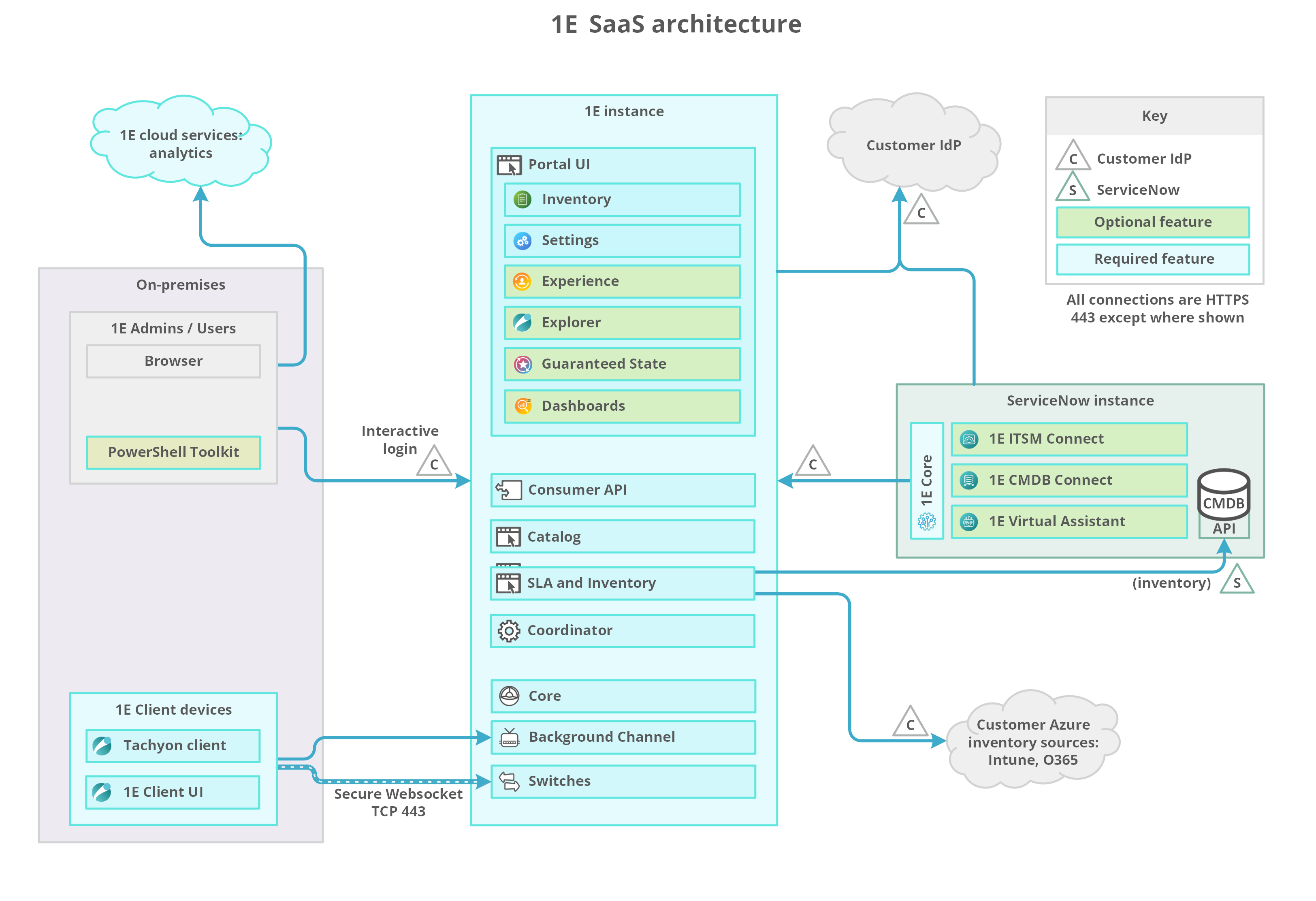Network requirements
The correct choice of name for your SaaS instance is perhaps the most fundamental decision you will make.
Note
Due to restrictions in Azure the name for your new instance cannot start with a number. The actual pattern definition used for names is:
^[a-z][a-z0-9-]{1,58}[a-z0-9]$
You must ensure the firewalls on your client, servers, and network are configured correctly, and your Internet connections are whitelisted.
Firewall Ports

In addition to but not included are various ports used to communicate with Microsoft services, including Certificate Services and Identity Provider (IdP).
If Content Distribution module is being used by 1E Client on Windows computers, it has additional port requirements of its own.
Additional outgoing ports may need to be opened on clients if instructions need to connect to non-platform content sources.
Whitelisting connections to 1E Cloud
The simplest method is to whitelist *.1e.com
The following sections briefly describe 1E features which connect to the 1E Cloud.
For guidance on whitelisting and configuring Internet Explorer proxy settings, please refer to Preparation.
1E Analytics URL
Ensure the following URL are whitelisted for clients:
https://analytics.1e.com
https://data.analytics.1e.com
https://content.analytics.1e.com
https://_460897a4cf2c02443c6af6aed8761f7b.content.analytics.1e.com
Or simply *.analytics.1e.com or *.1e.com
Downloading client content and Content Distribution integration
1E Client downloads content from the 1E Background Channel. Content is mainly scripts and other files required by instructions. It also includes client resources such as extensible modules, providers, and other dependencies to maintain the 1E Client. In most cases, client resources are version controlled to prevent repeated downloads. 1E instructions always request a download even if they have run an instruction before, unless the content for that instruction has been cached in memory.
You may need to consider the impact on the network if there is a large amount of content included in an instruction. This is more of an operational consideration instead of a design consideration.
For details refer to Content Distribution client requirements.